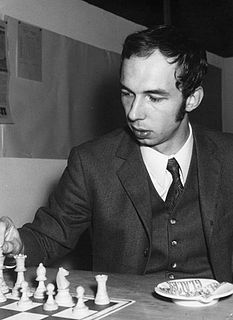A Quote by Leigh Hunt
Fishes do not roar; they cannot express any sound of suffering; and therefore the angler chooses to think they do not suffer, more than it is convenient for him to fancy. Now it is a poor sport that depends for its existence on the want of a voice in the sufferer, and of imagination in the sportsman.
Related Quotes
Alas, poor Yorick! I knew him, Horatio: a fellow of infinite jest, of most excellent fancy: he hath borne me on his back a thousand times; and now, how abhorred in my imagination it is! my gorge rims at it. Here hung those lips that I have kissed I know not how oft. Where be your gibes now? your gambols? your songs? your flashes of merriment, that were wont to set the table on a roar? Not one now, to mock your own grinning? quite chap-fallen?
The poor, you know, have a way of solving problems...they have a tremendous capacity for suffering. And so when you build a vehicle to get something done, as we've done here in the strike and the boycott, then they continue to suffer - and maybe a little bit more - but the suffering becomes less important because they see a chance of progress; sometimes progress itself. They've been suffering all their live.s It's a question of suffering with some kind of hope now. That's better than suffering with no hope at all.
To love is to suffer. To avoid suffering one must not love. But then one suffers from not loving. Therefore, to love is to suffer; not to love is to suffer; to suffer is to suffer. To be happy is to love. To be happy, then, is to suffer, but suffering makes one unhappy. Therefore, to be happy one must love or love to suffer or suffer from too much happiness.
...the mind is more powerful than any imaginable particle accelerator, more sensitive than any radio receiver or the largest optical telescope, more complete in its grasp of information than any computer: the human body- its organs, its voice, its powers of locomotion, and its imagination- is a more-than-sufficient means for the exploration of any place, time or energy level in the universe.
The best test to know whether an entity is real or fictional is the test of suffering. A nation cannot suffer, feel pain or fear, or has no consciousness. Even if it loses a war, the soldier suffers, the civilians suffer, but the nation cannot suffer. Similarly, a corporation cannot suffer, when it loses its value, it doesn't suffer. All these things, they're fictions. If people bear in mind this distinction, it could improve the way we treat one another and the other animals. It's not a good idea to cause suffering to real entities in the service of fictional stories.
It is a fearful thing to hate whom God hath loved. To look upon another-his weaknesses, his sins, his faults, his defects is to look upon one who is suffering. He is suffering from negative passions, from the same sinful human corruption from which you yourself suffer. This is very important: do not look upon him with judgmental eyes of comparison, noting the sins you assume you'd never commit. Rather, see him as a fellow sufferer, a fellow human being who is in need of the very healing of which you are in need. Help him, love him, pray for him do unto him as you would have him do unto you.
If you want to nourish a bird, you should let it live any way it chooses. Creatures differ because they have different likes and dislikes. Therefore the sages never require the same ability from all creatures. . . concepts of right should be founded on what is suitable. The true saint leaves wisdom to the ants, takes a cue from the fishes, and leaves willfulness to the sheep.







































